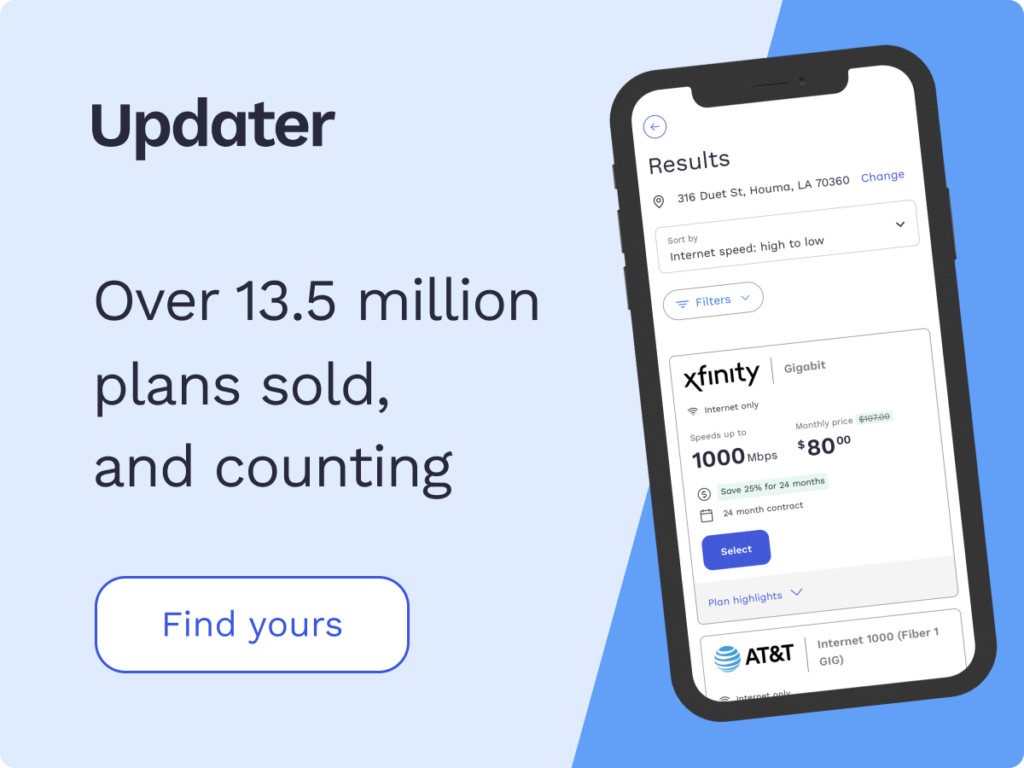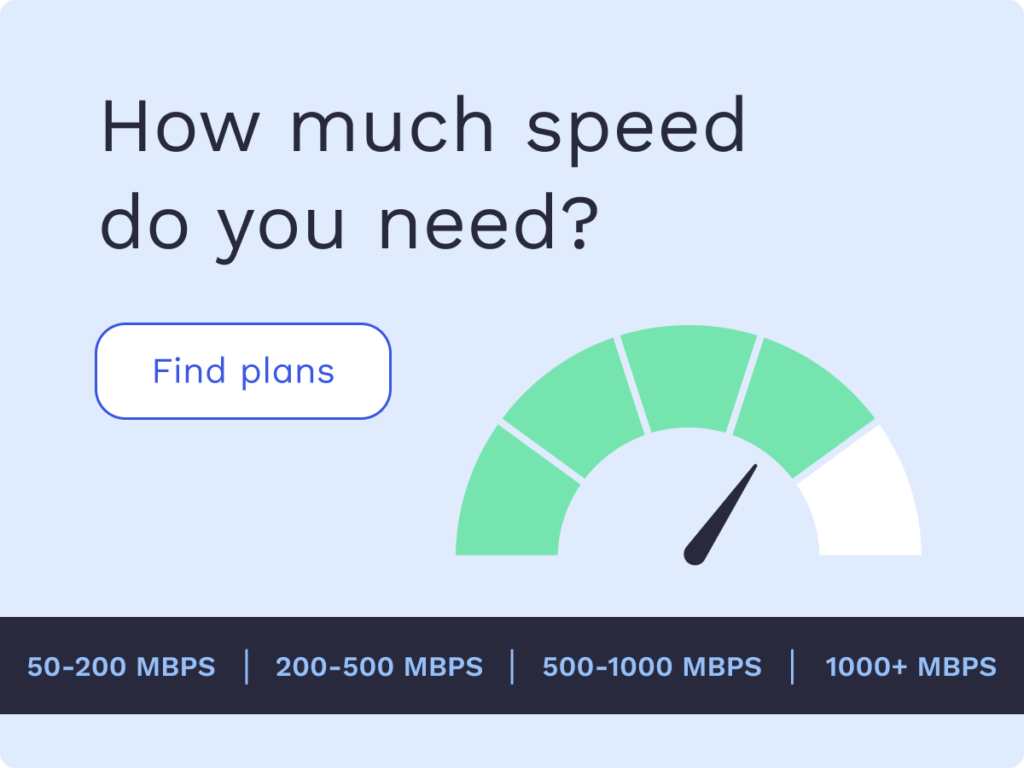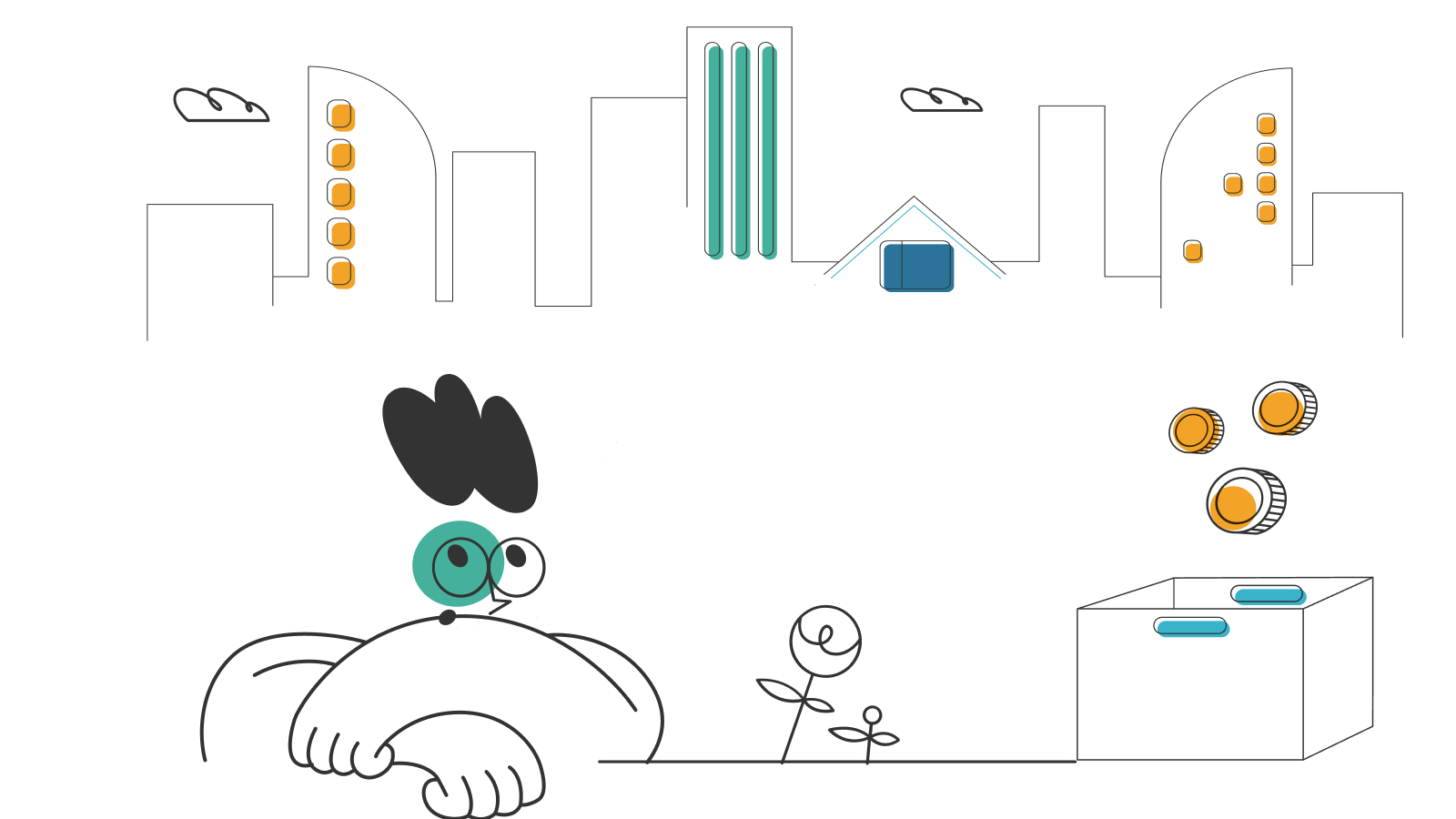A Guide to Internet Connection Types

Curious what internet and TV plans are available locally?
Enter your address to find out what providers and plans are available to you.
Each type of internet service provider (ISP) has their own benefits and features, so choosing the right one will depend on your individual needs. Depending on where you live, you may have access to all or some of the internet provider types, including fiber, cable, DSL, fixed wireless, and satellite. Speed, reliability and price vary widely among these types of connections so you’ll want to make sure you know how they compare before making any decisions.
To make the right choice, we’ve gathered all the information you’ll need to understand and compare different types of internet providers. This guide will dig into what each type of internet connection has to offer, so you can make an informed decision when it comes to selecting your internet service.
What are the most common types of internet connections?
Fiber optic internet
Fiber optic, or simply fiber internet refers to internet obtained through a fiber optic cable. This is a very fast type of internet connection as it can send data at 70 percent of the speed of light. Yes, you read that correctly! You can count on fiber internet for amazingly quick speeds of up to 5000Mbps.
Cable internet
Cable internet is also a relatively high-speed type of internet connection that functions through the same system that delivers cable television service. In other words, your internet connectivity comes through cable wires, coaxial cables to be exact, at speeds up to 1000Mbps.
DSL internet
DSL stands for Digital Subscriber Line and is similar to cable internet in the type of infrastructure needed to make it functional. However, the general consensus is that cable internet is faster than DSL connectivity. At the same time, DSL can also be quite a bit cheaper. If faster speed isn’t a huge issue for you, you might benefit from more affordable DSL service.
5G internet
5G internet is the newest version of 4G LTE and is a wireless technology that works through broadband cellular networks. This allows for increased reliability, faster speeds, a smoother user experience, and of course, a much larger network capacity. This latest technology offers users the quickest access to internet service, but it is still not easily accessible in all parts of the US.
4G LTE internet
4G LTE is the predecessor of 5G and is quite impressive, but in comparison to 5G it offers lower speeds and less reliability. It’s important to understand that 5G technology is so advanced that while it may be superior to 4G LTE, it isn’t always needed for everyday web browsing. If internet speed is not critical to you because you aren’t downloading and streaming constantly, then 4G LTE may be a good option.
Fixed wireless internet
Fixed wireless is a less common type of internet service, but if you live in a rural area that offers little-to-no access to other types of internet service, fixed wireless internet can be a good option. With fixed wireless internet, a signal is sent from a main access point directly to an individual receiver that’s installed in your home. It’s a reliable, high-speed connection that can reach speeds up to 300Mbps.
Satellite internet
Satellite internet connections are readily available just about anywhere in the US. The only downside to satellite internet is that it can be slow at high-traffic times. The signal is literally coming from a satellite in space orbiting the earth. If too may users are logged on at once, trying to use that same signal, it can result in lower speeds for whoever is using it. If you tend not to use internet during high traffic times, this may not be an issue for you and you can expect speeds of up to 100Mbps.
Frequently asked questions (FAQs)
How important is internet speed?
This largely depends on how many devices or users are in your home accessing the internet and what you primarily use the internet for. If you typically use email, pay bills, and perform other simple tasks, internet speed likely isn’t a big deal. A slower connection won’t affect you and you will be able to complete your daily tasks without any issues. For example, you may only need speeds of 1Mbps to check emails, but you will want at least 25Mbps if you plan to do any streaming.
If you and others in your home are working from your computers all at once, using streaming services, or gaming regularly, a high-speed connection will be more important. For example, a couple who surfs the web on occasion may be fine with a DSL connection. But, a family with two parents who work from home and three children using Netflix and playing video games would be better off with a higher-speed internet connection like cable.
What is broadband internet?
Broadband internet refers to just about any internet connection with the exception of dial-up internet. It is always connected and there is no need for dial-up. The term is used interchangeably with high-speed internet, but doesn’t currently have any specific qualifications. However, anything over 25Mbps download speed will typically fall into the category of broadband internet.
What if I am not happy with my internet provider?
If you live in or near a major city, it’s likely that you can easily switch to another internet provider if you’re not happy with the service you’re getting. However, you may be required to pay early termination fees for canceling and switching providers. This is something you should inquire about before you actually make a switch.
If you live in a more rural area, switching ISPs may be more difficult as there may not be many alternate options. But a service like satellite internet is likely an option, no matter where you live so doing a quick search of internet providers that service your location can help you make a decision.
*Pricing varies by location and availability. Speeds may vary. All prices subject to change; for current pricing and availability visit our internet service page. Prices as of 3/31/22.
Disclosure | Updater articles are based on our own data and research, independent from partner relationships. We are not compensated by partners for information and opinions presented here. Our Editorial Terms of Service can be found here.
Curious what internet and TV plans are available locally?
Enter your address to find out what providers and plans are available to you.
Internet and TV tips
Switching providers and don’t know where to start? We can help.














